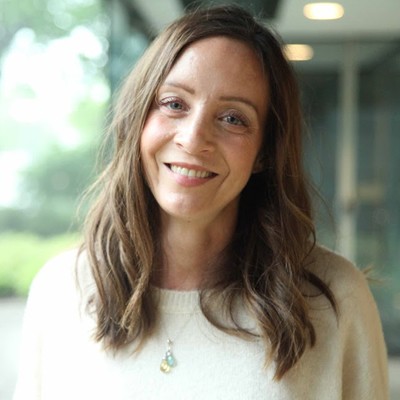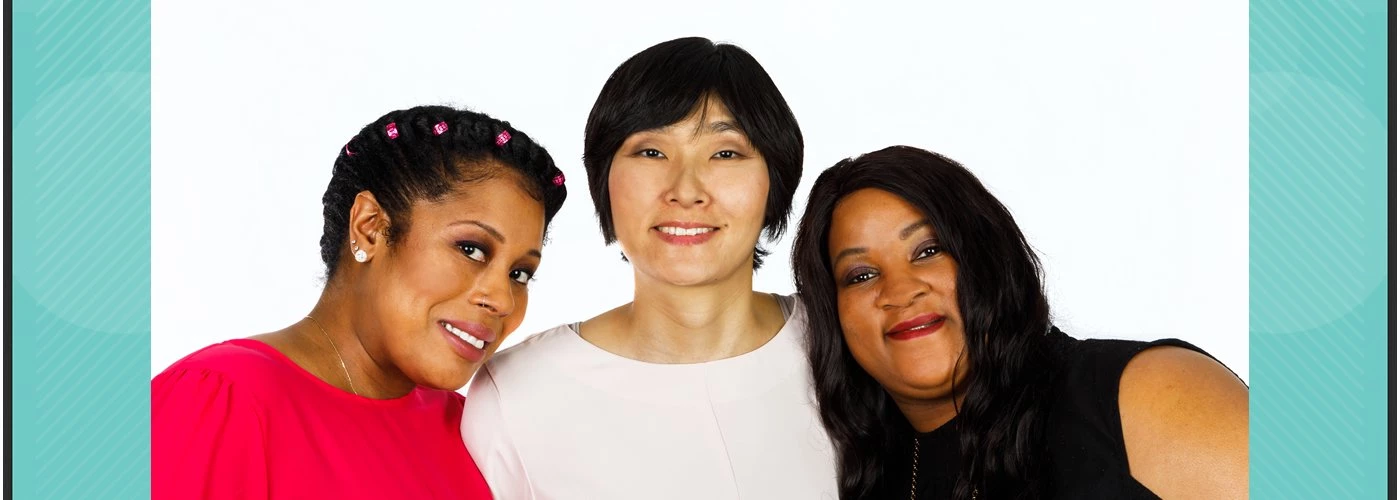For most of us diagnosed with breast cancer as younger women, we wonder if we’ll survive and whether we detected it “early” enough. Given the messages we’ve received about early detection over the past generation or so, these are valid concerns. We may not know anyone else close to our age who has ever been diagnosed with cancer, let alone breast cancer. Prior to my diagnosis at age 32, I mistakenly believed it was a grandmother’s disease .
Once treatment starts and a plan is in place, we might start to feel more in control. I used to imagine the chemo coursing through my veins as Pac-Man, chomping up bits of cancer along the way, trying to avoid the ghosts. My nurses said something like, “this year will be a marathon, but then this will all be behind you.”
Which is not exactly how survivorship works in my experience.
Cancer for Real
My experience is a relatively unique one. In 2011, I had a de novo (from the beginning) diagnosis of metastatic breast cancer. I had nearly five years of cancer treatment, including IV chemo, targeted antibody-drug conjugates, radiation and a few surgeries. Like most people
living with metastatic breast cancer (MBC), I measured time in the three-month increments between scans.
"Metastatic breast cancer is not yet a chronic condition, but there is reason for hope. There are many options for treating MBC and extending one’s life."
When I was on treatment, my scans looked good. But every time I took a break, “hot spots” would crop up. They appeared in my chest wall, my spleen and occasionally my lungs. Finally, in 2016, a lung biopsy revealed that the suspicious lesion was not in fact MBC but rather an autoimmune disease that can mimic cancer on scans.
After I was released from breast cancer treatment, I began to understand the twisted path of long-term cancer survivorship a bit more. In treatment, I didn’t feel like a survivor. Though the most common definition says we are all survivors from the moment we are diagnosed.
Survivorship - What It Really Looks Like
The National Coalition for Cancer Survivorship (NCCS) recently did a survey regarding some of the most common issues facing survivors. Near the top of the list were mental health issues, including anxiety and signs of post-traumatic stress disorder (PTSD). Other issues will probably not be a surprise, especially to young survivors. These include relationship issues, financial woes after having our careers interrupted, and thoughts of long-term care and late-term side effects.
Most of us struggle with this to some degree or another. After months of being doted on by concerned friends and family, feelings of isolation are not uncommon. The lasting effects of treatment – scars, neuropathy, fertility issues or menopause – can leave us feeling battered and out of control of our own bodies. And of course, most of us have concerns about recurrence or progression no matter our stage at diagnosis.
- Experts say the “fear of cancer recurrence” is something many survivors live with.
- The anxiety over if and when their disease might return is real. For some, that fear can become debilitating.
- “A common term we hear cancer survivors use is ‘scanxiety’ (or scan anxiety),” said Shelley Fuld Nasso, chief executive officer of the NCCS.
- “It’s especially pronounced in people with metastatic disease who really live from scan to scan,” she told Healthline.
- “Sometimes their family and friends don’t understand the fear they live with. They think, ‘you’re done, everything is great.’ But the survivor always has that nagging thought in the back of their minds,” she added. (https://www.healthline.com/health-news/when-cancer-comes-back-shannen-doherty-recurrence#Fear-of-recurrence)
The facts about metastatic breast cancer are sobering. Only about 5% of cases are de novo metastatic. It is tough to track because current databases only follow patients for five-year outcomes. But estimates say that an additional 20-30% of early-stage patients will go on to become metastatic at some point. Sometimes this happens decades down the road, as is the case with Olivia Newton-John. According to the American Cancer Society, five-year survival for a patient with MBC is around 27%. The median survival time is only about three years.
Shannen Doherty’s Story
News like that of 1990s television star Shannen Doherty’s metastatic recurrence can leave us reeling wondering if we’ll be next or what we can do to lower our risk. Or it can render us hopeful that a celebrity talking about metastases – when cancer has spread to the bones or distant organs such as the brain, lungs, or skin – in such a public way might help drive more research dollars. However it affects us, it is hard to ignore when a public figure announces they’ve joined the ranks of nearly 17 million survivors in the U.S. – whatever their breast cancer stage.
Ms. Doherty has said she is “petrified” about her terminal diagnosis which she says happened about a year ago. The 48-year-old was originally diagnosed with breast cancer in 2015. How brave of her to admit her fear so openly. It is a scary diagnosis.
Metastatic breast cancer is not yet a chronic condition, but there is reason for hope. Ms. Doherty didn’t reveal details about her treatment. But there are many options for treating MBC and extending one’s life – sometimes for a decade or more. Hormonal therapies, targeted treatments, radiation and systemic chemotherapy are all possibilities. Clinical trials are also a way to explore emerging treatments and help advance science.
Ms. Doherty’s news has also raised the question of support for many of us. There is the acute phase of supporting a friend newly diagnosed. But how can we best support those among us who’ve had recurrences or who have metastatic disease?
In Short, Show Up
Continue to be a friend. Make specific offers like “I will drive you to treatment on Tuesday,” or “I’m bringing you meals (or ordering you Sunbasket) this week.” Don’t just ask how you can help – offer something concrete or ask what would best support them or make them feel better. A stage four diagnosis can be very isolating so let your person know they are not alone. Remember their children’s birthdays. Talk to them about things other than cancer. Show up.
Be An Advocate
And if you have the ability and willingness, be an ally in breast cancer advocacy efforts. Research funding for metastatic cancer is paltry. People with the disease often have limited energy and resources for influencing policy or making waves in the research world. It is so necessary to hear patient (and ally) voices across the advocacy spectrum.
What we cannot afford is for early-stage patients and survivors to ignore the realities of MBC. There was a heated debate in the comments of an Instagram post last fall, where early-stage survivors expressed anger and dismay about the post which illuminated the median survival time for those living with MBC. Commenters said things like “really not helpful” or “this should come with a trigger warning.”
Talking about MBC and advocating for breast cancer research is no more likely to make the disease occur than joking about getting hit by a bus is going to manifest that destiny. We cannot bury our heads in the sand in the hopes that ignoring the possibility of metastases will eliminate MBC. That is not how progress works. Those patients living with metastatic breast cancer are on limited time and cannot be the only advocates for life-saving research. They need allies. Show up.
 In August 2011, at the age of 32, Jen was diagnosed with stage four, metastatic breast cancer (ER+, PR+, Her2neu+). She had been married less than 3 years with a son who was just five months old. By the end of 2016, Jen was officially restaged to Stage II breast cancer plus an autoimmune disease that can mimic metastases on scans. Today, she shows no signs of either disease. A lawyer and former lobbyist, she writes about navigating the intersection of motherhood and cancer-land. She also serves as a member of YSC's Legislative Advocacy Council of Advisors.
In August 2011, at the age of 32, Jen was diagnosed with stage four, metastatic breast cancer (ER+, PR+, Her2neu+). She had been married less than 3 years with a son who was just five months old. By the end of 2016, Jen was officially restaged to Stage II breast cancer plus an autoimmune disease that can mimic metastases on scans. Today, she shows no signs of either disease. A lawyer and former lobbyist, she writes about navigating the intersection of motherhood and cancer-land. She also serves as a member of YSC's Legislative Advocacy Council of Advisors.





